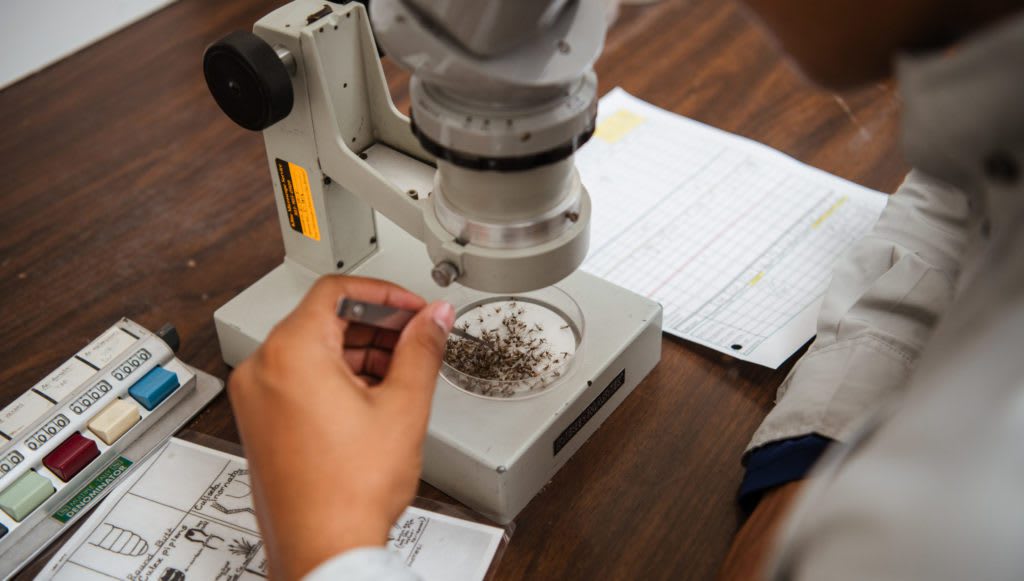Revolutionizing Mosquito Control: The Wolbachia Solution
Harnessing Science to Combat Mosquito-Borne Diseases and Transform Global Health

Imagine a mosquito factory in Brazil gearing up to release 5 billion specially engineered mosquitoes across the country. It might sound like the premise of a sci-fi film, but in reality, it's one of the most innovative applications of science in recent times. Let's delve into this fascinating development.
Mosquitoes are universally disliked and with good reason. Apart from being a nuisance with their buzzing and itchy bites, they are the deadliest animals to humans, primarily due to the diseases they transmit. Annually, diseases like malaria infect about 247 million people worldwide, alongside other significant illnesses such as Dengue and Zika.
But why not just eradicate mosquitoes altogether? A study published in Nature explored this question and found that while some species depend on mosquitoes for food, their extinction wouldn't have a significant impact on human ecosystems. Only about 200 out of the 3,200 mosquito species bite humans, so eliminating these particular species might not disrupt ecological balance to a great extent.
Enter the innovative solution from the mosquito factory: infecting mosquitoes with a bacterium known as Wolbachia. This bacterium naturally inhibits viruses like Dengue and Zika from replicating inside mosquitoes, thereby reducing disease transmission without needing to eliminate the entire mosquito population.
Here’s how it works in practice: Mosquitoes infected with Wolbachia are released into the wild. When these male mosquitoes mate with females, either the eggs don't hatch or the offspring carry Wolbachia. Over successive generations, this bacterium spreads through the mosquito population, decreasing the prevalence of disease-causing viruses.
Evidence from field trials in various locations, including Indonesia and Colombia, has shown promising results. In some areas, Dengue cases plummeted by up to 95%, marking the lowest rates in decades. This success has spurred plans to scale up mosquito production in Brazil, aiming to release up to 100 million mosquitoes per week across multiple cities.
Concerns about Wolbachia affecting humans are minimal. Approximately 50% of insects naturally carry Wolbachia, including common mosquitoes like the ones buzzing around our homes. Extensive evaluations by health authorities have confirmed that Wolbachia poses no significant risk to human health.
While this innovative approach complements existing disease control strategies, it is not meant to replace vaccinations. Instead, it offers a supplementary tool in the fight against mosquito-borne diseases, potentially reducing the burden on healthcare systems worldwide.
The ongoing success in Colombia serves as a testament to the effectiveness of this approach. Recent reports from the Aburá Valley in Colombia, where Wolbachia-infected mosquitoes were released starting in 2015, indicate a remarkable 95% reduction in Dengue fever cases, reaching the lowest levels seen in over 20 years. This outcome is particularly significant considering that other parts of the Americas experienced some of the highest Dengue fever rates since the 1980s during the same period.
Looking ahead, scientists and health officials are exploring how to optimize the deployment of Wolbachia-infected mosquitoes on a larger scale. In regions like Brazil, where diseases such as Dengue and Zika pose substantial public health challenges, this innovative strategy could potentially save millions of people from illness and significantly alleviate healthcare burdens.
Innovation often arises from unexpected avenues. The mosquito factory in Brazil exemplifies how thinking outside the box can lead to groundbreaking solutions that positively impact millions of lives worldwide. As research continues and technology advances, initiatives like this remind us of the transformative potential of science in addressing global health challenges.
By harnessing the power of Wolbachia-infected mosquitoes, researchers not only tackle immediate health threats but also pave the way for a more sustainable approach to disease control. As we confront ongoing challenges in public health, innovations like this offer hope for a future where deadly mosquito-borne diseases are effectively managed, if not eradicated altogether.
About the Creator
Enjoyed the story? Support the Creator.
Subscribe for free to receive all their stories in your feed. You could also pledge your support or give them a one-off tip, letting them know you appreciate their work.





Comments
There are no comments for this story
Be the first to respond and start the conversation.